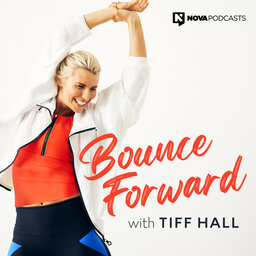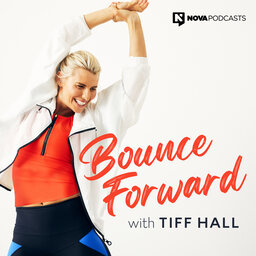Will a Deload Week Help Me Get Stronger?
A deload week is basically like a cheat week with your diet and your exercise, but does it actually help you come back into your routine stronger?
Tiff answers whether a deload week works for you, and how to best look at doing it.
LINKS
- Follow Tiff Hall on Instagram @tiffhall_xo, Youtube, and Facebook
- Email Tiff at bounceforward@novaentertainment.com.au
- Find out more about Tiff Hall and TXO https://mytxo.com/
- Follow Nova Podcasts on Instagram for videos from the podcast and behind the scenes content – @novapodcastsofficial.
CREDITS
Host: Tiff Hall
Executive Producer: Rachael Hart
Editor: Adrian Walton
Managing Producer: Ricardo Bardon
Find more great podcasts like this at novapodcasts.com.au
Nova Entertainment acknowledges the traditional custodians of the land on which we produced this podcast, the Wurundjeri people of the Kulin Nation. We pay our respect to Elders past and present.
In 1 playlist(s)
Bounce Forward
We always hear we need to bounce back...We think you should ‘Bounce Forward!’ Join Fitness Guru an…Social links
Follow podcast
Recent clips

We're Taking a Break, But We'll Be Back
06:17

Rachel Corbett Was on a Sure Path to Post-Natal Depression
13:04

Rachel Corbett's Solo Birth Story
17:32
 Bounce Forward
Bounce Forward